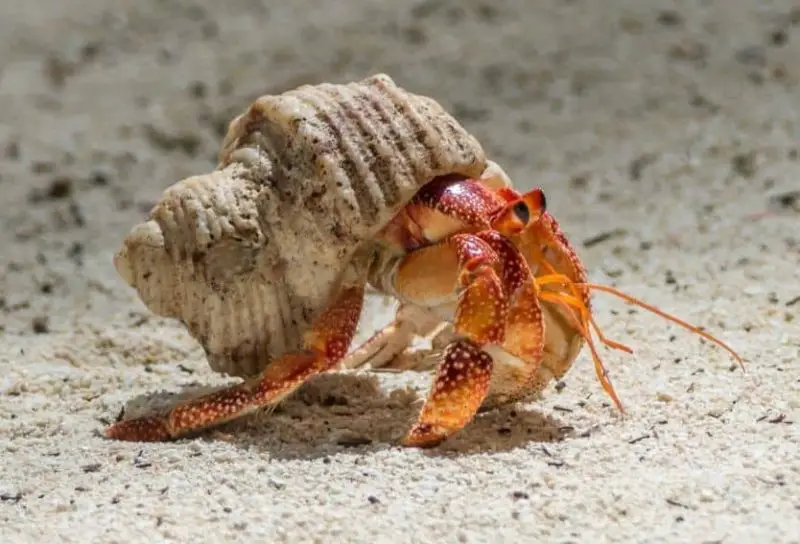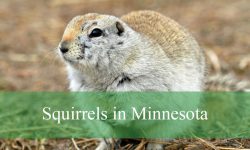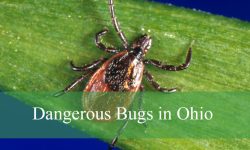Hermit crabs are fascinating creatures, known for their unique way of living and their quirky behavior. One of the most intriguing aspects of their care is understanding what they eat.
If you’re considering keeping a hermit crab as a pet, or if you’re simply curious about their natural diet, this article will provide a detailed guide to what hermit crabs eat. We’ll explore their feeding habits, the essential foods for their diet, and some tips on keeping your hermit crab healthy.
The Natural Diet of Hermit Crabs

In the wild, hermit crabs are scavengers. They play an essential role in their ecosystem, helping to break down organic matter such as decaying leaves, fruit, and even dead animals. Their diet is diverse and includes a mix of plant and animal-based foods. Understanding the variety of foods hermit crabs consume in nature can give you insight into how to replicate their diet in captivity.
Omnivorous Feeding Habits
Hermit crabs are omnivores, meaning they eat both plant and animal matter. Their diet in the wild typically consists of:
- Decaying Vegetation: Hermit crabs consume fallen leaves, dead flowers, and rotting fruits that they find on the forest floor.
- Algae and Seaweed: In coastal areas, hermit crabs feed on algae, seaweed, and other aquatic plants.
- Dead Animals: They are opportunistic feeders and will scavenge on small dead animals or insects that they come across.
- Invertebrates and Insects: Hermit crabs also eat small invertebrates and insects that are easily accessible to them.
These varied dietary sources help hermit crabs thrive in their natural environment, providing them with the nutrients they need to survive and grow.
What Do Hermit Crabs Eat in Captivity?
While hermit crabs can find their own food in the wild, when kept as pets, their diet must be provided for them. As a pet owner, you need to ensure that your hermit crab gets a balanced and nutritious diet to keep them healthy. Below is a breakdown of the foods you should offer your hermit crab.
Commercial Hermit Crab Food
Commercial hermit crab food is available in pet stores and can be an easy and convenient option for feeding your pet. These foods typically contain a mix of dried fruits, vegetables, grains, and proteins. While they can provide some essential nutrients, it’s important to remember that these should not be the only food your hermit crab eats.
- Pellets: These are often made with a mix of grains, vitamins, and minerals. Pellets can be a good base food but should be supplemented with fresh foods.
- Flakes: Hermit crab food flakes are similar to pellets and offer a balanced mix of nutrients.
Commercial food is a quick solution but shouldn’t be the sole item in your hermit crab’s diet, as variety is key to providing a well-rounded nutrition profile.
Fresh Fruits and Vegetables
Fruits and vegetables are an important part of a hermit crab’s diet. They provide essential vitamins and minerals needed for proper growth and molting. Some of the best options include:
- Leafy Greens: Offer spinach, lettuce, kale, and dandelion greens. These provide vitamins and minerals, as well as fiber.
- Carrots: Carrots are a great source of beta-carotene and vitamin A.
- Apples: Apples (without seeds) provide hydration and natural sugars, which hermit crabs love.
- Papaya and Mango: These fruits are high in vitamins and antioxidants, making them a tasty treat for your hermit crab.
- Cucumbers and Zucchini: These vegetables offer hydration and a refreshing snack for your hermit crab.
Make sure to remove any seeds, pits, or stems that could be harmful to your hermit crab. Always wash fresh produce thoroughly to remove any pesticides or chemicals.
Proteins for Hermit Crabs
Hermit crabs also require protein for growth, molting, and overall health. While they are scavengers and often feed on animal matter in the wild, you can offer them protein-rich foods in captivity. Some great protein options include:
- Boiled Eggs: Offering small pieces of boiled eggs can provide your hermit crab with essential protein and fats.
- Fish: Small pieces of cooked fish, such as tuna or salmon, are a great source of protein for hermit crabs.
- Chicken: Boiled chicken (without seasoning) is another protein option that hermit crabs enjoy.
- Insects: You can offer small, gut-loaded insects such as crickets or mealworms to mimic the insects hermit crabs might eat in the wild.
Make sure any animal-based proteins are fresh and unseasoned to avoid harmful additives.
Calcium Sources for Shell Growth
Calcium is crucial for hermit crabs, especially for maintaining their exoskeleton and shell. Without adequate calcium, hermit crabs may have difficulty molting and could become vulnerable to injury. Here are some ways to provide calcium:
- Cuttlebone: A common source of calcium for hermit crabs, cuttlebone is an excellent supplement.
- Crushed Oyster Shells: Available in pet stores, crushed oyster shells can be added to their food or provided as a separate dish.
- Eggshells: Crushed eggshells provide a natural and affordable source of calcium for your hermit crab.
Treats and Snacks
Hermit crabs love variety, and you can spoil them with occasional treats. Some of the best options for hermit crab treats include:
- Coconut: Fresh or dried coconut provides fiber and healthy fats.
- Honey: A small amount of honey can be a sweet treat, but it should only be given in moderation.
- Bananas: Bananas are high in potassium and can be a great treat for hermit crabs when offered in small amounts.
Water and Hydration
Hydration is vital for hermit crabs. While they consume moisture from fruits and vegetables, they also need access to fresh water. Always provide both fresh and saltwater in their habitat. The saltwater should be made with a marine salt mix, not regular table salt, as hermit crabs need the minerals found in ocean water.
Foods to Avoid
While hermit crabs have a broad diet, there are certain foods that should be avoided due to their potential harm to their health. These include:
- Processed Foods: Avoid offering processed human food such as chips, crackers, or sugary snacks. These contain artificial preservatives, sugars, and fats that can harm hermit crabs.
- Citrus Fruits: Avoid giving citrus fruits like oranges, lemons, and limes, as they are too acidic and can upset their stomach.
- Spicy or Seasoned Foods: Hermit crabs should never eat foods that are seasoned with salt, spices, or other additives. These can be toxic to them.
- Chocolate: Like many animals, hermit crabs should never be given chocolate, as it contains theobromine, which is poisonous to them.
How Often Should You Feed Your Hermit Crab?
The feeding schedule for hermit crabs varies depending on their size, age, and environment. In general, hermit crabs should be fed every other day, but they should always have access to food, especially if you’re providing fresh items. Remove any uneaten food after 24 hours to prevent it from decaying and affecting the tank’s hygiene.
Conclusion
Understanding what hermit crabs eat is crucial for providing them with a healthy and balanced diet. By offering a variety of foods, including fresh fruits, vegetables, proteins, and calcium sources, you can ensure your hermit crab thrives in captivity. Additionally, maintaining proper hydration and avoiding harmful foods will keep your hermit crab happy and healthy. With the right diet and care, your hermit crab can enjoy a long and fulfilling life.






